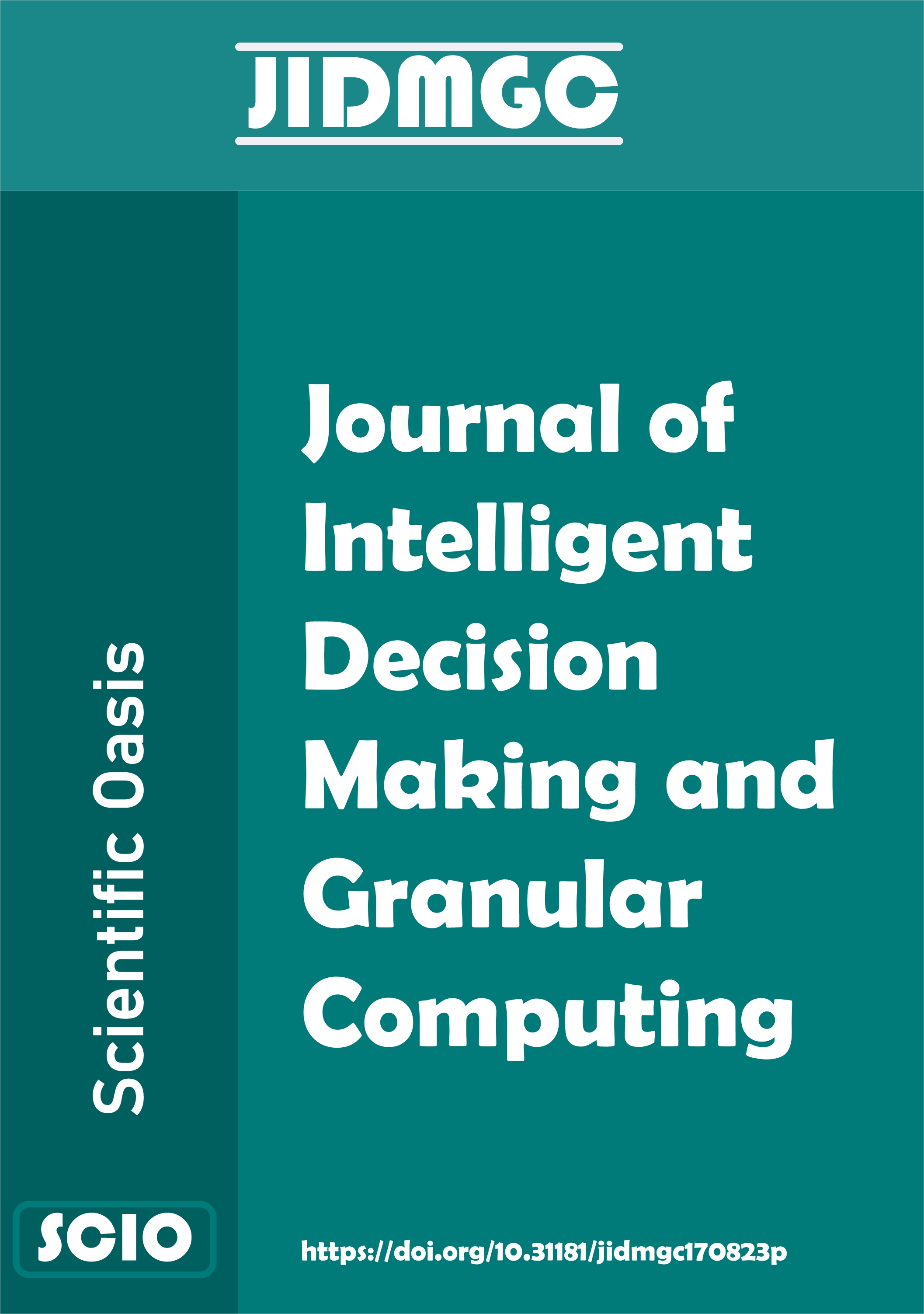Analysis of Collaborative Procurement of Green Building Projects in China
DOI:
https://doi.org/10.31181/jidmgc11202512Keywords:
Collaborative Procurement, Collaboration, Green Building, ChinaAbstract
The low carbon transformation of the building sector has become trendy, driven by the objective of minimising carbon emissions and safeguarding the environment. Consequently, China has established a goal for the ecological transformation of the building sector. To effectively execute a green construction project while safeguarding the environment, it is imperative that all stakeholders collaborate from the outset. Green construction initiatives need an increased volume of information and technology. This prompts us to provide the following research enquiries: What is collaborative procurement? In what ways may a customer collaborate with a green building project's designer and contractor to get a favourable result? How might collaborative procurement tactics enhance communication and cooperation among a customer, designer, and contractor? This research concludes that collaborative procurement practices are more appropriate for green construction projects, facilitating cooperation among clients, contractors, and designers to attain social and economic advantages and ensure effective project execution. The research employs qualitative analysis and interviews with ten personnel engaged in green construction initiatives to get these results.
Downloads
References
You, K., Ren, H., Cai, W., Huang, R., & Li, Y. (2023). Modeling carbon emission trend in China’s building sector to year 2060. Resources, Conservation and Recycling, 188, 106679. https://doi.org/10.1016/j.resconrec.2022.106679
Lyu, J., Pitt, M., & Deveci, M. (2025). Analysing thermal comfort perception of students in university classrooms in London. Building and Environment, 113086. https://doi.org/10.1016/j.buildenv.2025.113086
Horman, M. J., Riley, D. R., Lapinski, A. R., Korkmaz, S., Pulaski, M. H., Magent, C. S., … Dahl, P. K. (2006). Delivering Green Buildings: Process Improvements for Sustainable Construction. Journal of Green Building, 1(1), 123–140. https://doi.org/10.3992/jgb.1.1.123
Herazo, B., & Lizarralde, G. (2015). The influence of green building certifications in collaboration and innovation processes. Construction Management and Economics, 33(4), 279–298. https://doi.org/10.1080/01446193.2015.1047879
Chmeit, R., Lyu, J., & Pitt, M. (2024). Implementation Challenges of Building Information Modelling (BIM) in Small to Medium-Sized Enterprises (SMEs) Participating in Public Projects in Qatar. Computer and Decision Making: An International Journal, 1, 252–279. https://doi.org/10.59543/comdem.v1i.11035
Ndekugri, I., & Turner, A. (1994). Building Procurement by Design and Build Approach. Journal of Construction Engineering and Management, 120(2), 243–256. https://doi.org/10.1061/(asce)0733-9364(1994)120:2(243)
Romzek, B. S., & Johnston, J. M. (2002). Effective Contract Implementation and Management: A Preliminary Model. Journal of Public Administration Research and Theory, 12(3), 423–453. https://doi.org/10.1093/oxfordjournals.jpart.a003541
Eriksson, P. E., & Laan, A. (2007). Procurement effects on trust and control in client‐contractor relationships. Engineering, Construction and Architectural Management, 14(4), 387–399. https://doi.org/10.1108/09699980710760694
Ferme, L., Zuo, J., & Rameezdeen, R. (2018). Improving Collaboration among Stakeholders in Green Building Projects: Role of Early Contractor Involvement. Journal of Legal Affairs and Dispute Resolution in Engineering and Construction, 10(4), 04518020. https://doi.org/10.1061/(asce)la.1943-4170.0000278
Love, P. E. D. (2002). Influence of Project Type and Procurement Method on Rework Costs in Building Construction Projects. Journal of Construction Engineering and Management, 128(1), 18–29. https://doi.org/10.1061/(asce)0733-9364(2002)128:1(18)
Forgues, D., & Koskela, L. (2009a). The influence of a collaborative procurement approach using integrated design in construction on project team performance. International Journal of Managing Projects in Business, 2(3), 370–385. https://doi.org/10.1108/17538370910971036
Song, L., Mohamed, Y., & AbouRizk, S. M. (2009). Early Contractor Involvement in Design and Its Impact on Construction Schedule Performance. Journal of Management in Engineering, 25(1), 12–20. https://doi.org/10.1061/(asce)0742-597x(2009)25:1(12)
Todeva, E., & Knoke, D. (2005). Strategic Alliances and Models of Collaboration. Management Decision, 43(1), 123–148. Retrieved from https://www.emerald.com/insight/content/doi/10.1108/00251740510572533/full/html
Ilter, D. (2012). Identification of the relations between dispute factors and dispute categories in construction projects. International Journal of Law in the Built Environment, 4(1), 45–59. https://doi.org/10.1108/17561451211211732
Walker, H., Schotanus, F., Bakker, E., & Harland, C. (2013). Collaborative Procurement: A Relational View of Buyer-Buyer Relationships. Public Administration Review, 73(4), 588–598. https://doi.org/10.1111/puar.12048
Ketchen, D. J., Ireland, R. D., & Snow, C. C. (2017). Strategic entrepreneurship, collaborative innovation, and wealth creation. Strategic Entrepreneurship Journal, 1(3-4), 371–385. https://doi.org/10.1002/sej.20
Ward, S. C., Curtis, B., & Chapman, C. B. (1991). Advantages of Management Contracting—Critical Analysis. Journal of Construction Engineering and Management, 117(2), 195–211. https://doi.org/10.1061/(asce)0733-9364(1991)117:2(195)
GhaffarianHoseini, A., Dahlan, N. D., Berardi, U., GhaffarianHoseini, A., Makaremi, N., & GhaffarianHoseini, M. (2013). Sustainable energy performances of green buildings: A review of current theories, implementations and challenges. Renewable and Sustainable Energy Reviews, 25, 1–17. https://doi.org/10.1016/j.rser.2013.01.010
Nguyen, L., & Watanabe, T. (2017). The Impact of Project Organizational Culture on the Performance of Construction Projects. Sustainability, 9(5), 781. https://doi.org/10.3390/su9050781
Oyegoke, A. S., Dickinson, M., Khalfan, M. M. A., McDermott, P., & Rowlinson, S. (2009). Construction project procurement routes: an in‐depth critique. International Journal of Managing Projects in Business, 2(3), 338–354. https://doi.org/10.1108/17538370910971018
Marques, R. C., & Berg, S. (2011). Risks, Contracts, and Private-Sector Participation in Infrastructure. Journal of Construction Engineering and Management, 137(11), 925–932. https://doi.org/10.1061/(asce)co.1943-7862.0000347
Salah, A., & Moselhi, O. (2016). Risk identification and assessment for engineering procurement construction management projects using fuzzy set theory. Canadian Journal of Civil Engineering, 43(5), 429–442. https://doi.org/10.1139/cjce-2015-0154
Milner, H. (1992). International Theories of Cooperation Among Nations: Strengths and Weaknesses. World Politics, 44(3), 466–496. https://doi.org/10.2307/2010546
Demaid, A., & Quintas, P. (2006). Knowledge across cultures in the construction industry: sustainability, innovation and design. Technovation, 26(5-6), 603–610. https://doi.org/10.1016/j.technovation.2005.06.003
Lyu, J., Pitt, M., & Broyd, T. (2024). The impact of IEQ in the university lecture theatres on students’ concentration levels in London. Facilities, 42(9/10), 748–770. https://doi.org/10.1108/f-04-2023-0036
Kuhn, T. (1962). The structure of scientific revolutions. Philosophical Books, 4(3), 14–16. https://doi.org/10.1111/j.1468-0149.1963.tb00813.x
Zhang, Y., Kang, J., & Jin, H. (2018). A Review of Green Building Development in China from the Perspective of Energy Saving. Energies, 11(2), 334. https://doi.org/10.3390/en11020334
Wang, S., Ma, H., & Zhao, Y. (2014). Exploring the relationship between urbanization and the eco-environment—A case study of Beijing–Tianjin–Hebei region. Ecological Indicators, 45, 171–183. https://doi.org/10.1016/j.ecolind.2014.04.006
Zhu, Y., Koutra, S., & Zhang, J. (2022). Zero-Carbon Communities: Research Hotspots, Evolution, and Prospects. Buildings, 12(5), 674. https://doi.org/10.3390/buildings12050674
Downloads
Published
Issue
Section
License
Copyright (c) 2025 Jiayuan Zhang (Author)

This work is licensed under a Creative Commons Attribution 4.0 International License.













 All site content, except where otherwise noted, is licensed under the
All site content, except where otherwise noted, is licensed under the 